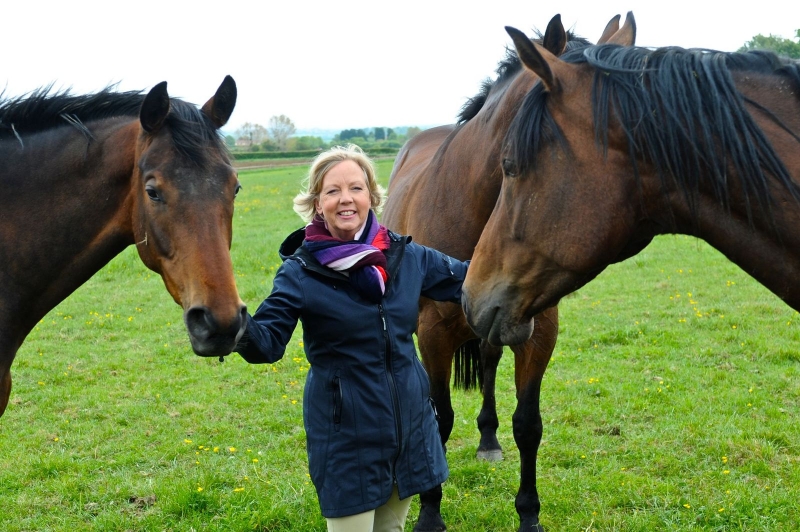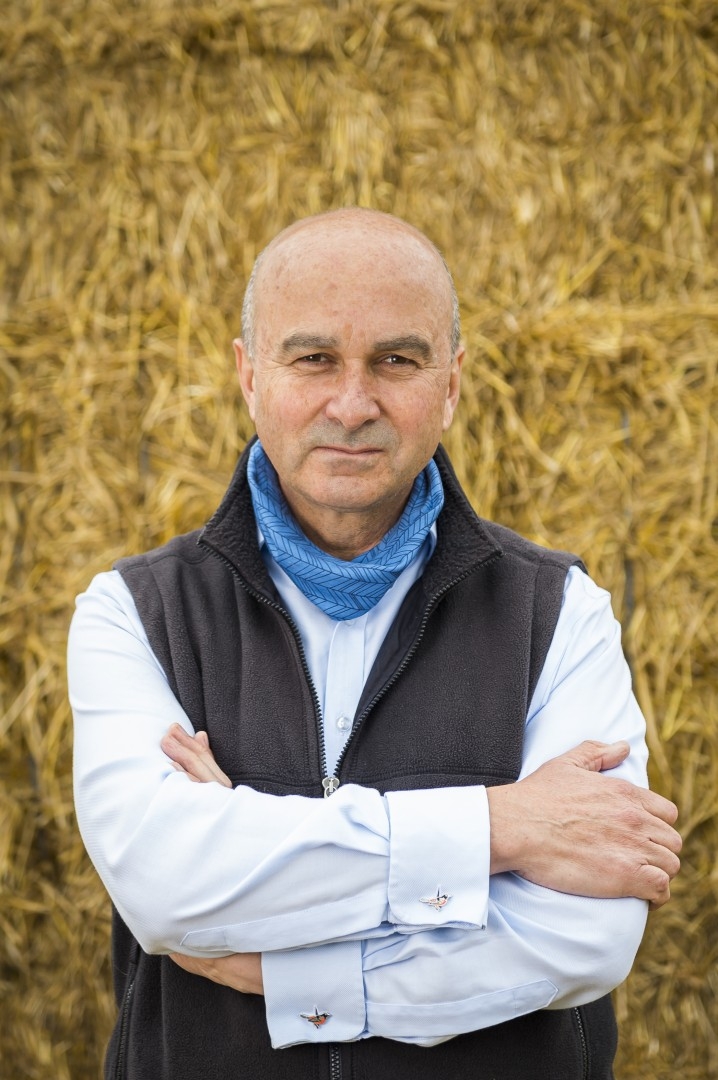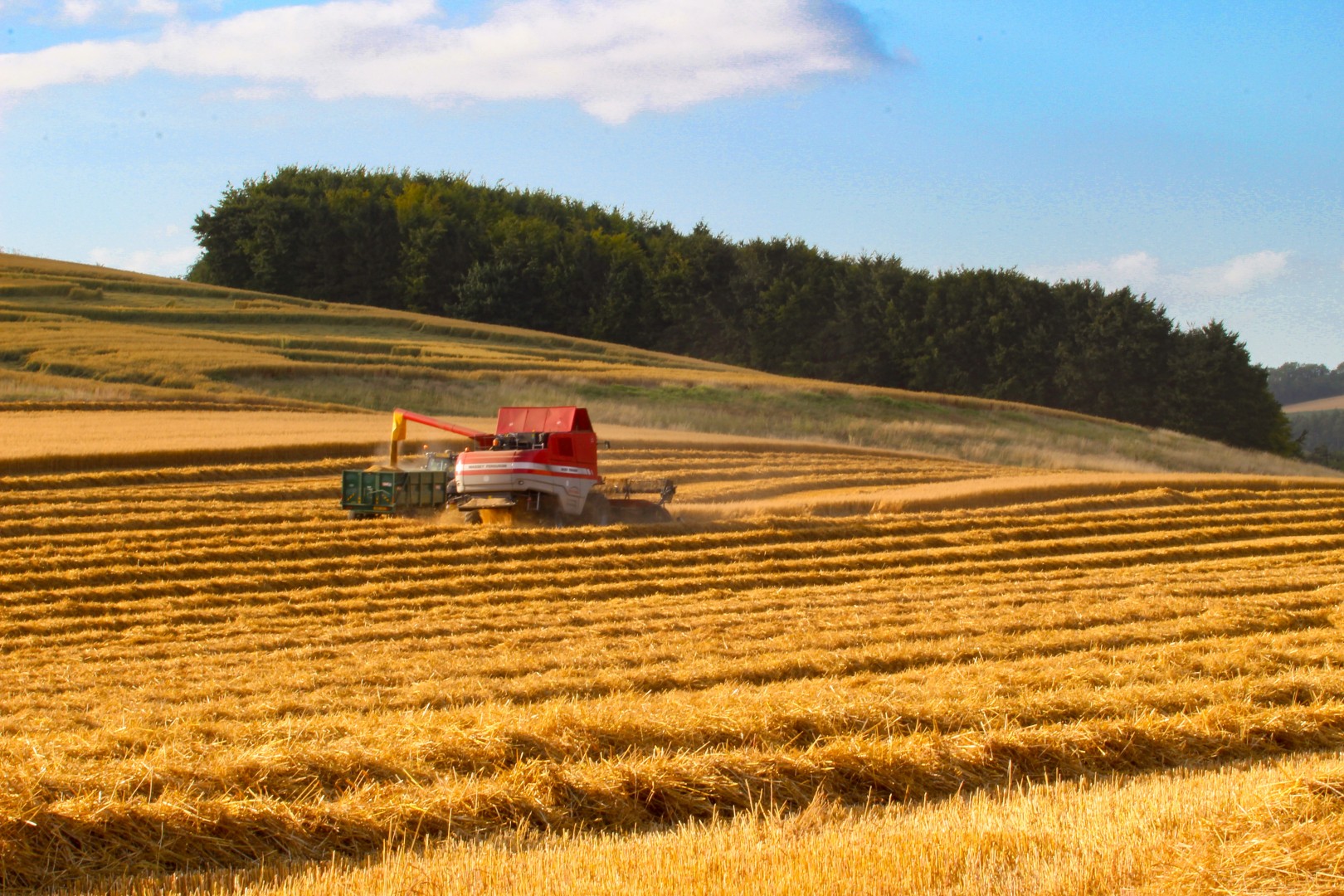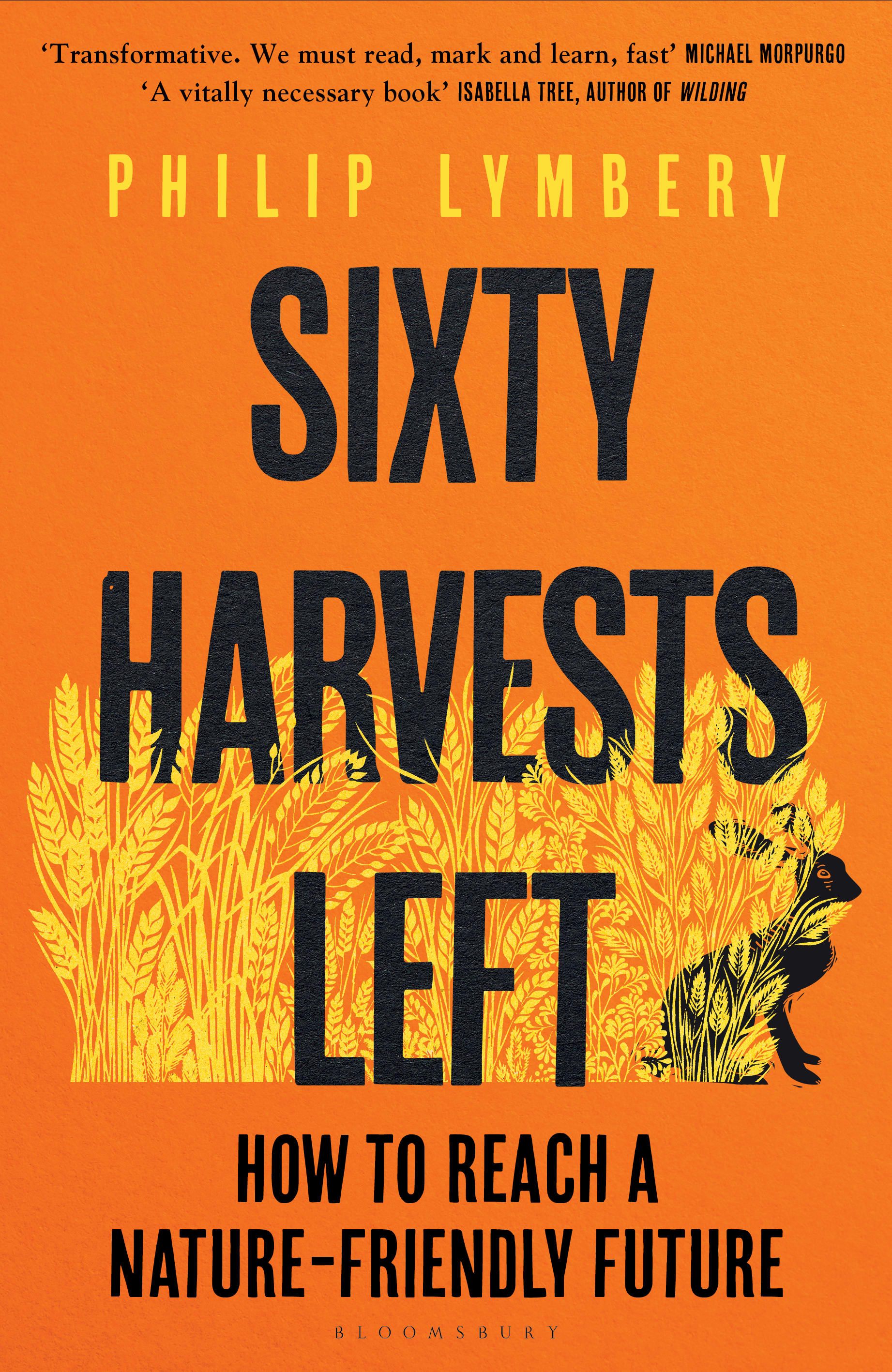As part of the FT Weekend Oxford Literary Festival, on 16 September Philip Lymbery – Global CEO of Compassion in World Farming – will be joined by entrepreneur, investor and self-described ‘planet-hugger’, Deborah Meaden at the Sheldonian Theatre in Oxford to discuss his latest book, Sixty Harvests Left: How to Reach a Nature-Friendly Future.
Sixty Harvests Left may be considered as completing a trilogy, following the successful (and very readable) publication of previous bestsellers, Farmageddon and Dead Zone. It explores the ways in which global food production and the industrialisation of the land pose a direct threat to the planet, and thereby to humanity. OX Editor, Sophie Elkan, was fascinated to speak exclusively with both Philip and Deborah ahead of the event.
What ties industry and compassion for world farming together?
Deborah Meaden: I would say the opposite; what keeps them apart? The way we live is totally integrated. Everything we produce has an impact someway, either on animal welfare – well, always on animal welfare – always on the planet, always on the environment. So, industry has to be part of the conversation because I don’t think you can separate the things we produce from how we produce them.
Philip Lymbery: Exactly, for a long time now we have been talking about saving the planet but we’re now talking about saving ourselves. Humanity is facing existential threats with climate emergency, the collapse of nature and the rising pandemic and health risks. We need to do something. Factory farming is the biggest cause of animal cruelty on the planet. It is further a major driver of wildlife declines and it is also a rising pandemic risk. What brings business and the animal welfare community together is that unless we start protecting animals we're not going to be protecting people in the future. Really, the future of business depends on us doing the right thing today, and that means ending factory farming, getting serious about animal welfare and getting serious about saving ourselves, not just the planet.

That leads to my next question. The book is coming out as we are facing a very bleak time ahead. I wonder what you can say to people who just feel they can’t afford to change their consumer habits.
DM: I think it’s proving extremely costly to fight against the planet, which is how we are living our lives at the moment. We spend a fortune trying to tame what is in itself a natural wonder. So, I think once we get it in our minds that we need to stop fighting against the planet and start working with the planet and start understanding that yes, the way the energy market works isn't working with renewables at the moment but fundamentally renewable energy is very low cost or free in terms of both financial and planetary impacts.
Our markets have to change because at the moment we get no benefit from a lot of the wonderful environmental things we do. We need to adjust our markets so that we can embrace the lower cost and the longer way of living. I will also say there are people at the moment who might think ‘I have got too much on my plate, I can’t worry about the planet. I just need to heat my home and feed my family’ – I get that. However, there is a huge raft of people who can afford to make these changes. These are the people that need to do it: if you can afford to, if you can actually help create the markets. There has never been a more important moment to make the right decisions to enable the market to move towards less impactful renewables. So that’s what I say; not everyone can do the same thing but we can all measure what we are able to do and we have a responsibility to do that.
Philip, as a science communicator how you are able to get that balance between conveying the urgency of the situation without putting people off and overwhelming your readers?
PL: I think the good news is a healthy section of the book – the Spring section – is all about hope. It’s about the fact that there are beautiful, life-affirming solutions that can bring landscapes back to life, that can restore soil fertility, that can create wonderful, nutritious food, and enable animals to experience the joy of living. So, not just animal welfare in the old sense of being free from suffering but actually enjoying life as part of the environment. I think the book is a book of hope; there are ready-made solutions to the problems we are facing. They rely on us moving to common sense: regenerative farming where animals are brought back to the land as part of mixed rotational farms; re-thinking protein, so it isn't just seen as meat and dairy but also looking at plant-based alternatives including cultivated meat technologies – cell-based meat produced in a bioreactor with no animals slaughtered, or precision fermentation where you can produce precise nutrients again in a fermentation tank using techniques long established from creating bread and wine. The book is full of hope. It’s about meeting pioneers of a new food future and we need to move to that new food future very quickly. Deborah has already outlined some of the ways in which we can all take action and help. I would add to that by saying we all have a power to change things three times a day through choosing to eat more plants, less and better meat and dairy – and by better, I mean from free-range, pasture-fed or organic sources.

Fascinating, so who is the book aimed at?
PL: Sixty Harvests Left is not written for a science audience. It’s heavily based on science and other evidence, and that’s why there are many pages of references, but ultimately this is what I call a ‘Waterstones book’. It’s the kind of book you might pick up in your high street book store, regardless of whether you have background knowledge or not. Actually, preferably if you don’t have a background – pick it up, I think it will be an engaging read that you will enjoy.
So often, it feels as if the onus is on us as consumers or individuals to act and sometimes I think ‘hang on, I’m not the one who's asked for my apples to be wrapped in plastic’. Can I pass that over to you, Deborah, for comment?
DM: So, I would change those words. I say it’s not that the onus is put on the individual, I always say the power is placed with the individual; it’s a very different thing. Through the Big Green Money Show [BBC Radio 5 Live with Deborah Meaden, available on BBC Sounds] we constantly end up realising that of course, the power is actually with the consumer. Once you start thinking ‘actually, this matters to me, I’m going to make the people that I’m buying from change their behaviour because I’m going to tell them that it's unacceptable’ it starts an empowering process. The truth of the matter is, the consumer is beginning to wake up to that. It’s all very well saying ‘the supermarkets do this and other people do that, it’s all of their faults’ but they will carry on as long as the consumer accepts it. When the consumer says enough is enough, they change.

That’s a good thing to be reminded of. Finally, I want to ask both of you; when something feels overwhelming, it is often helpful to break it down into small steps and tackle them one by one. What would that first step be for you?
PL: I think the first thing we need to do as a society is stop factory farming. We need to end factory farming where animals are caged, crammed and refined and where feed is grown in vast fields using chemical pesticides and fertilisers which diminish the soil and wipe away wildlife. That’s what we need to change. How people can help goes back to the concept of three times a day on our plate (eating more plants and less and better meat and dairy) but I think Deborah is right. It is an empowerment statement we're giving – get involved through your food choices. I think what I would also say is that it is so important to join lobby groups, like Compassion in World Farming, so that we can push policymakers and companies and ultimately the UN to lead. We need Liz Truss now to step up and lead us away from this climate and nature pandemic emergency that we are all facing. That means bringing into force the policies and incentives necessary to transform the food system. To move us away from industrial and towards regenerative production, and to move us away from this horrendous situation where we find people on low incomes are expected and forced to feed their children on poor quality, factory-farmed food that is an abomination. We need to make decent environmentally friendly, nature friendly, humane food a basic human right. Let’s do it.
DM: That was very powerful, Philip, I’m going to make mine very personal. I would say one day – just decide on one day – you get up in the morning, you take your shoes off, put your feet on the ground. You stand still and you listen to the birds and the wildlife. Maybe you go to the countryside to do it, if you’re living in a city, but stop and pay attention to the world. Make a promise just for that one day: ‘everything I do today, I’m going to consider the impact that has on the planet.’ Then, when you get to the end of that one day, decide how you’re going to change your behaviour. It might just be one thing: I am going to buy fewer clothes; I am going to eat less meat, whatever it is, make yourself a promise.
What I have found is that when I started on my journey – it is a journey, nobody is perfect – I had to think ‘oh, now I have to think about the recycling, now I need to think about this and that and so on’ but after a while, it gets into your DNA and once it does you don’t think about it so consciously. In the back of your mind it becomes ‘hmm, that’s good or that’s not so good’. Start that journey by connecting with the world and the earth and the things that you care about. Measure for one day the impact you are having and then promise yourself that when you get to the end of the day you’re going to change at least one thing in your life.
I think that’s both empowering and inspirational – both of which are so often missing from the conversation. Thank you both.
Sixty Harvests Left: How to Reach a Nature-Friendly Future, Philip Lymbery (Aug 2022, Bloomsbury)
philiplymbery.com | deborahmeaden.com | ciwf.org
The FT Weekend Oxford Literary Festival is holding four events between 16-17 September 2022. Philip Lymbery and Deborah Meaden, with chair Matthew Stadlen, will be discussing Sixty Harvests Left: How to Reach a Nature-Friendly Future at The Sheldonian Theatre at 6pm on Friday 16 September. Other events feature Celia Imrie, Chris Patten and Ian McEwan. Tickets and further information at oxfordliteraryfestival.org









